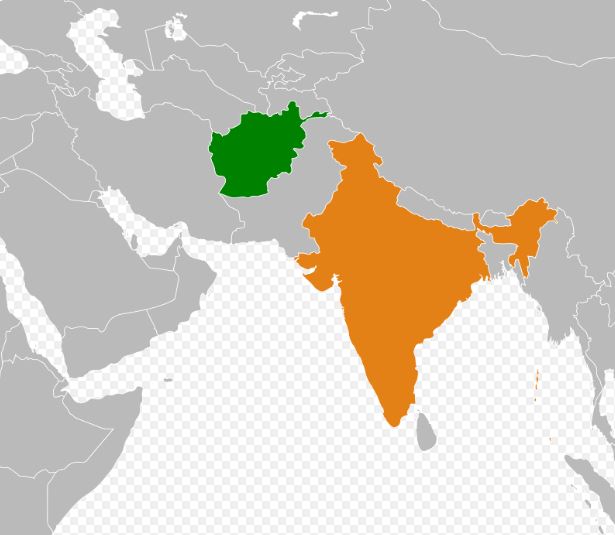In April, India and the United States released a joint statement in which they urged the Taliban to uphold human and women’s rights. In addition to this, they urged the Taliban to prevent Afghanistan from providing assistance to terrorists or sheltering terrorists. One month later, a meeting between the US Special Representative for Afghanistan and high-level Indian officials took place. Additionally, representatives from both nations met with Abdullah Abdullah, who was carrying a special message from the Taliban. On June 2, 2022, India made its first formal journey to Afghanistan.
Recent events have shown that India and the United States have started to recognise and act on their shared strategic interests in Afghanistan under the authority of the Taliban. Both nations have continued to keep an active line of communication open with the Islamic Emirate. They think that their limited participation will serve their national interests, encourage the Taliban to change, and avert total catastrophe in Afghanistan, even though diplomatic recognition is not in sight so far.
Throughout the previous two decades, India kept healthy diplomatic ties with every administration in Afghanistan. It did this while simultaneously establishing a diplomatic presence and making significant investments in Afghanistan. According to the available historical records, India has a long tradition of maintaining a non-cooperative stance toward the Taliban and has on multiple occasions urged the international community to refrain from acknowledging and normalising the ties with the Taliban.
India opposed the peace process at every level and in every international venue, including the United Nations, even after the United States launched a dialogue with the Taliban. It is quite clear that New Delhi has never made a meaningful contribution to the peace talks that have been going on between the United States and the Taliban. Rather, it has acted as a stumbling block to preventing the conversations from continuing. By continuing to provide financial support to anti-Pakistan terrorist organisations and forces, the government and agencies of India proceeded to undermine the fragile peace that had been established in the region. Although public announcements suggest that the visit is intended to address humanitarian problems, India, a regional nation, has a covert objective of forging relations with the new Taliban leadership.
In the realm of international politics, it is a commonly held belief that neither allies nor foes can be considered permanent. Realist paradigm adherents assert that a state’s nature is inherently selfish since human nature is inherently selfish. As a result, a state’s behaviour is dictated by the interests of its citizens. The legendary conflict of Taiban, which took place in the past and was won by the underdog, is well known throughout India. Following the political transition in Kabul, Delhi is now in a very difficult position.
India has achieved its strategic and political goals in Afghanistan via investments and other operations that have benefited from its tight relations with the US-led Ashraf Ghani administration. The United States is said to have assisted India in the process of establishing a relationship with the Taliban administration, as stated by several news sources. India has been making efforts to build ties with the Taliban to reclaim its former power and further its own strategic goals.
The geostrategic importance of Afghanistan, as well as it’s abundant natural resources, draws the attention of regional and international powers. If diplomatic connections are not formed with the Taliban, India’s geopolitical and economic goals in Afghanistan and the Central Asian Republics (CARs) would not be accomplished. This is because India has to work with the Taliban. India recognises Afghanistan as an important market for commercial activity as well. Furthermore, if Delhi’s relations with China and Pakistan improve, it will create opportunities to grow commerce with the CARs and beyond; as a result, policy modifications will put a higher emphasis on the protection of economic interests.
They hope that by working together with the Taliban, they would be able to thwart or challenge China’s ambitions to dominate the area while still preserving their economic interests. The current government in the area has a pressing need for the financial and humanitarian assistance that Indian lawmakers are hoping to get. As a result of the United States’ exit, Russia and China have emerged as the two key actors who are making use of the increased space granted to other regional and extra-regional nations. India, a major strategic ally of the United States in the area, will help to contribute to restricting China and Russia’s rising influence in Afghanistan.
Pakistan’s concern
Pakistan’s primary fear is that India’s presence in Afghanistan under the guise of providing humanitarian assistance would reawaken India’s dormant sleeper cells associated with its terrorist networks. Under the former administration in Kabul that was favourable to India, the government of Delhi and the agencies under its control assisted and supervised a terrorist network in Afghanistan to carry out subversive operations against Pakistan. When the Taliban finally took control of Kabul, however, insurgent activities in India came to an end. During the time of the previous Kabul administration, India made an effort to obtain access and influence inside the Afghan National Army by giving training to its soldiers. By assisting the Taliban with military training and attempting to influence military leaders, India hopes to get a foothold in its armed forces. Regional players must strive toward a greater institutionalisation of development cooperation in Afghanistan. This is especially important in light of the current uncertain context surrounding global security. Cooperation in the region is the need of the hour for collective peace and prosperity.
The writer holds an M.Phil degree from National Defence University. He is a freelance writer and can be reached at [email protected].










